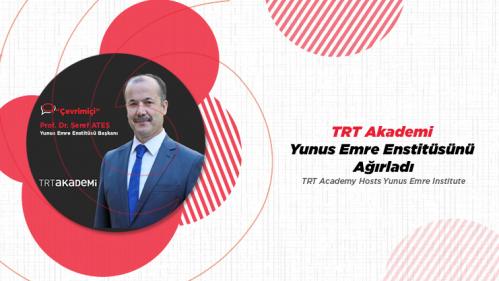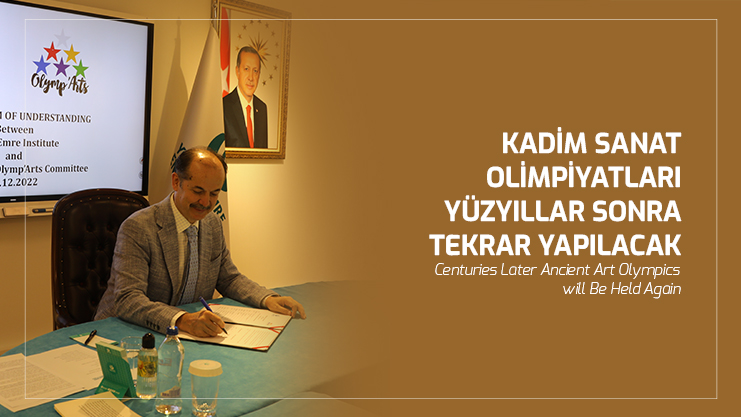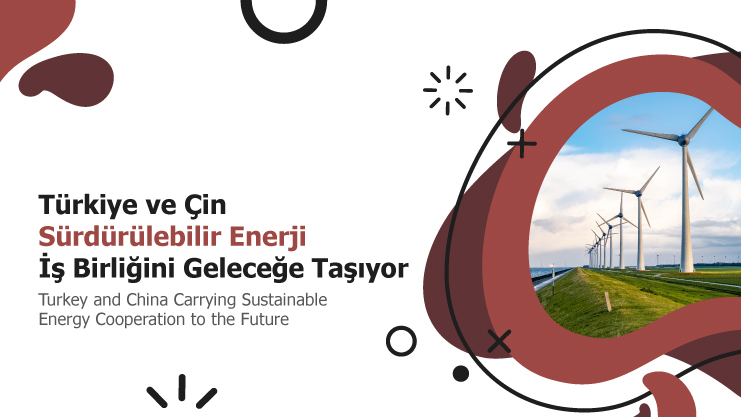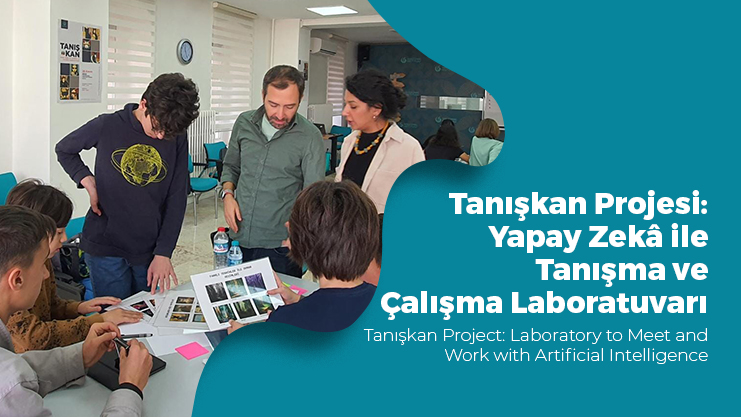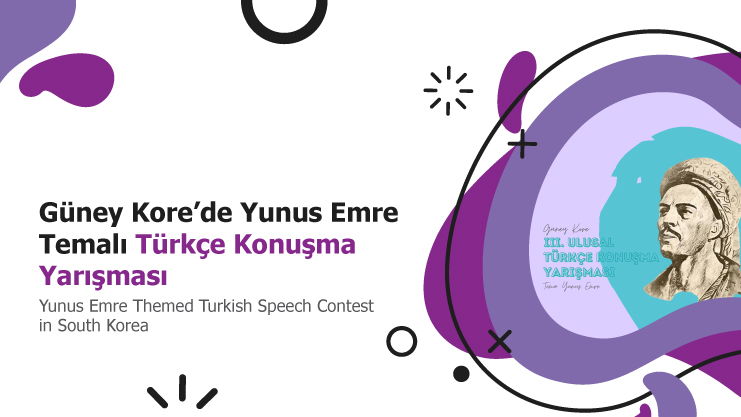TRT Academy Hosted Yunus Emre Institute
This week, TRT Academy Online Programme hosted the President of Yunus Emre Institute, Prof. Şeref Ateş. Prof. Ateş talked about the Turkish language teaching activities of Yunus Emre Institute, which it carries out in 60 centers around the world, the philosophy of the Institute, and the characteristics of Turkish language.
The TRT Academy Online programme, organized by the TRT Academy Magazine, hosted the President of Yunus Emre Institute, Prof. Şeref Ateş on Tuesday, April 20, 2021. Prof. Şeref Ateş talked about Yunus Emre Institute's mission of teaching Turkish language and promoting Turkish culture all around the world.
Prof. Ateş explained the 10-year history of Yunus Emre Institute at the programme hosted by Sezen Yüce.
Prof. Şeref Ateş mentioned that Yunus Emre Institutes were present in the Turkic Republics, Balkans, Middle East, countries of the European Union, South America and Far East, and said that the online activities of the Institute, which increased during the pandemic, were becoming more in demand with every passing day.
TURKISH TV SERIES INCREASE THE INTEREST IN TURKISH CULTURE

Prof. Ateş mentioned that the Turkish TV series were loved very much in the Balkans and Latin America, and said that they have also recognized the interest and love towards the Turkish TV series when they travelled to Malaysia and Indonesia. Prof. Şeref Ateş emphasized the quality of production in Turkey and the importance of the cultural transmission in those TV series, and said the following about the promotion of Turkey through the Turkish TV series:
“When we contact another culture, we also notice it ourselves. In a sense, it becomes a mirror. Thus, we also use TV series and movies a lot when teaching Turkish. Both the actors of TV series and films in Turkey and the filmmakers participate our events abroad. Thus, ties with Turkey are established.”
GETTING TO KNOW YUNUS EMRE IS MEETING THE TURKISH CULTURE
Prof. Ateş stated that getting to know Yunus Emre was to meet the Turkish Culture and said the following:
"Creating a bond with Yunus is described as some sort of compassion, love and meeting. Because, in essence, people and living things are interconnected, and thus, the language is also interconnected to allow this connection to be sustained sincerely. Most of the time, we do not think about our language, but we speak it. When we put it in slow motion, we see that there are many such words of compassion in our language, and that is why it is so valuable. In the TV series produced by TRT, "Yunus Emre: Journey of Love", the philosophy and perspective of Yunus Emre towards the journey of life is discussed. That is why it is so important. In many ways, our goals overlap with TRT."
DURING THE PANDEMIC, THE NUMBER OF OUR COURSE ATTENDEES INCREASED FROM 5,000 TO 60,000
Prof. Ateş answered Sezen Yücel's question, "You mentioned that we were present in many geographies. What is the age group of those people who prefer to learn Turkish?" as follows:
"It is mostly preferred by young people; we can say that it is between 18-35. People from all regions have different motivations to learn Turkish.".
Prof. Ateş stated that people were learning Turkish for the purposes of business in some regions and in some others, for academic purposes, and said that children in some countries started to learn Turkish as a second or a third language. He stated that the number of students for the in-person courses was 5,000 before the pandemic, and that the number of students increased to 60,000 now. Prof. Ateş explained how the number of students increased as follows:
"In my opinion, as we continue to believe in this, these numbers will increase to 600,000, to 6,0000,000. We must believe in this as a society. Because Turkish is an agglutinative language, it can be developed without drowning in too many grammatical structures."
Prof. Ateş answered the question of "What about the argument that the highest number of Turcology departments are present in Hungary and the students of those departments argue that Turkish is a language that embodies quite a few emotions?" as follows:
"In my opinion, each language is important, and the philosophy of the languages is also important. In our culture, language determines our world of meaning. So, the meaning in language, which we call semantics, is very valuable. In this respect, when we examine Turkish, we see that meaning within the language is quite valuable. Both in terms of acoustics and in terms of meaning. If we look at the East-West example, the place where the sun sets is the West, the place where it rises is the East. In this sense, Turkish is interconnected through such a beautiful meaning... On the other hand, the rhythm in language is also important. There is such a rhythm in Turkish. Every language is precious, as long as you produce something with it. You can produce poetry, you can produce philosophy, you can produce logic. Looking at the ontology, history and story of languages, there is the story of the Tower of Babel in the West, in which the people are prohibited from speaking the language and therefore disobeying the God. Whereas, for us, the purpose of language is to meet. Different languages and cultures are to meet. The saying of Yunus Emre, "Come, let us meet" also involves this; meaning that different languages exist for meeting different languages and different cultures. The geographical range of the Turkish language is also very important. It is not only the rhetoric of 'from the Adriatic to the Great Wall of China'. You can communicate in Turkish and different dialects of Turkish with 300 million people from the Balkans to the Great Wall of China.
Prof. Şeref Ateş mentioned that Turkish language was offered as an elective course in the Balkans and stated that thousands of young people came to Turkey and many Turkish students went to different Balkan countries such as Bosnia Herzegovina through sister school projects. Prof. Ateş mentioned that economic and familial relationships developed thanks to such contacts and stated that there were many locals who learned Turkish and started to work in Yunus Emre Institutes. He said that foreign personnel employed abroad first contacted Yunus Emre Institute and then were employed in Yunus Emre Turkish Cultural Centers in the countries where they were located.
Prof. Şeref Ateş stated that the culture was defined as the manner of carrying out a work and continued his words as follows:
"The people who strive to reach the 40 maqams through the 4 gates, who purify themselves of their egos by reorganizing themselves, who can make connections with different people, who can create bonds with a German, a Serbian and a Qatari can recognize characteristics that you may fail to see. Thus, it is valuable to be honest, be sincere and carry out a work for the humanity and without compensation. We do not notice it normally, but the culture, school and environment we are brought up teaches us this. We do not take generosity as a lesson or a value. However, even when we are at a restaurant abroad, we ask "Are we going Dutch or Turkish?". This example is in fact about generosity. Shame, patience, decency, self-knowledge are actually characteristics of this land."
The TRT Academy Online Programme which hosted Prof. Şeref Ateş can be viewed via the link below.

